
Aisle vs. Isle What's the difference? Ask Difference
For aisle, envision walking down the walkway of an airplane, a grocery store, or between rows of seating at a wedding. For isle, picture a serene and picturesque island surrounded by beautiful waters, such as the Isle of Wight or Isle of Skye. Ultimately, using visual associations helps you in distinguishing homophones like "aisle" and.

aisle vs isle English vocabulary lesson shorts YouTube
December 5, 2022 by Holistic SEO. "Aisle" is defined as a passageway between rows and seats in a building, such as a church, auditorium, or theater. The word "Aisle" is oftentimes used interchangeably with the word "Isle". "Isle", on the other hand, means a small island. These two English words are commonly misused because they.

Aisle or Isle What’s the Difference?
At least when it comes to aisle vs. isle, you'll remember the former is a walkway and the latter is an island. Walk down the aisle with LanguageTool and get a lifetime of picture-perfect writing! This advanced, multilingual editor can correct spelling, grammar, and punctuation errors whether you're using your phone, tablet, laptop, or desktop.
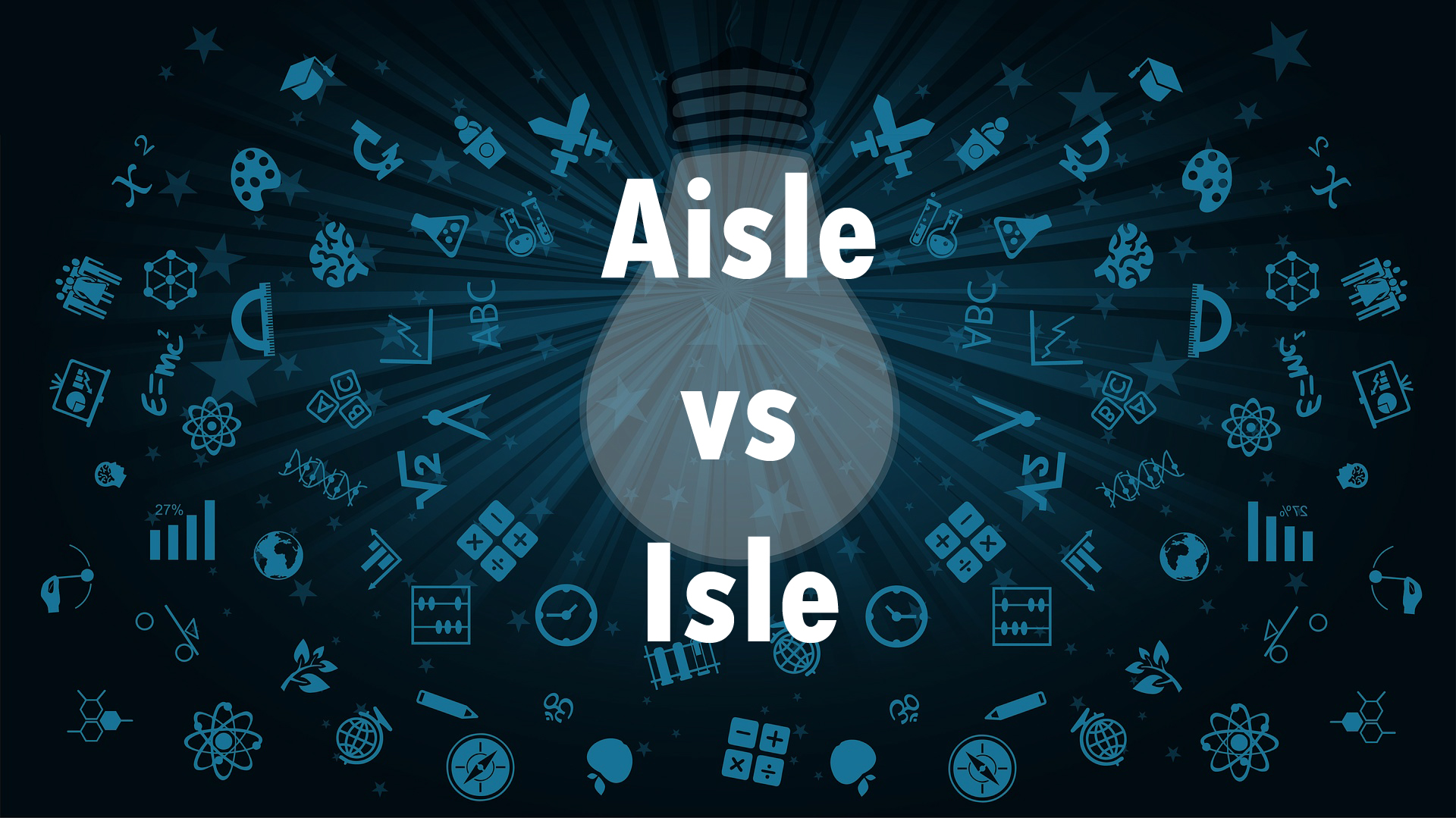
Aisle vs. Isle Grammar Corner Through Education
The word aisle typically refers to a walkway between sets of rows of seating or to the walkway between two sets of shelves in a store, as in a grocery store. The word isle refers to an island, especially a small island. The words aisle and isle are pronounced exactly the same and have nearly the same spelling.
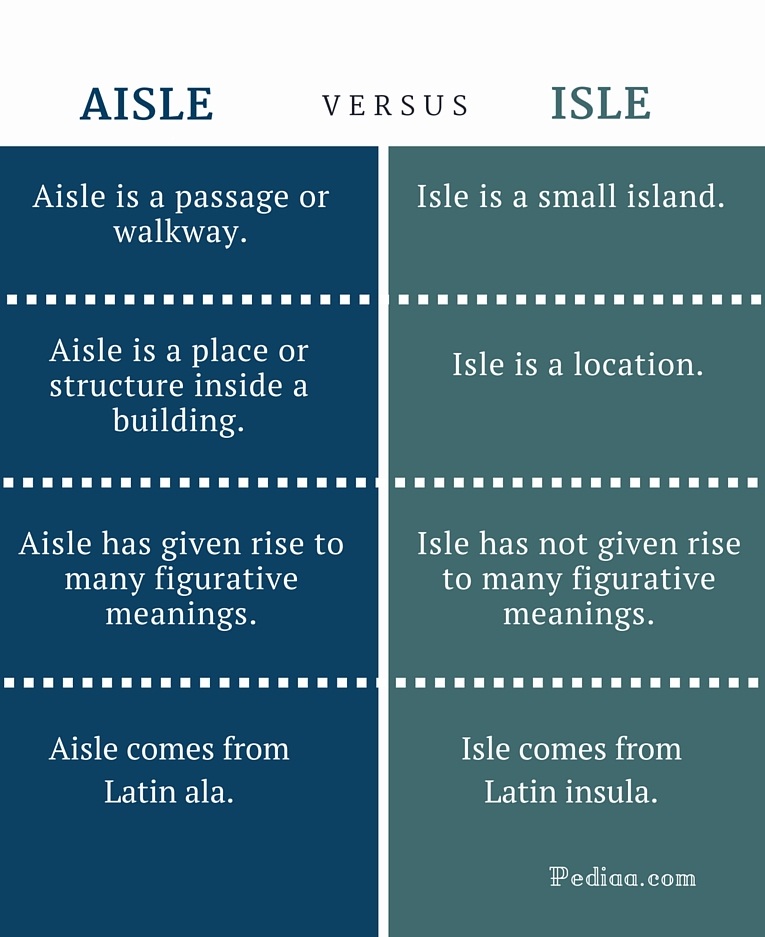
Difference Between Aisle and Isle
The words "aisle" and "isle" are homophones, which means they sound similar when pronounced but have different spellings and meanings. Therefore, homophones, or "aisle" and "isle, " cannot be interchangeably used in writings. The letter "s" in both the words are silent. Since "aisle" and "isle" are no replacement.

Aisle vs Isle YouTube
An aisle is a passageway between rows and seats in a building, such as a church, theater, or auditorium however, an isle is an island, usually a small one. If you have a hard time remembering this difference, have no fear. There is a great trick you can use each and every time you can't decide which is correct, aisle or isle.
Aisle vs. isle What’s the difference? The Word Counter
aisle vs. isle . What is the difference between aisle and isle? The homophones aisle ("a passageway that divides rows of seats") and isle ("an island, especially a small one") are both pronounced /aɪl/; the S is silent in both.

Aisle vs Isle Ask Linda! English Grammar YouTube
Aisle and isle are pronounced the same and spelled almost the same (with that bizarre, silent S ), but their meanings are quite different. An aisle is a walkway or passage — often between seating, as in a church, train, or theater, or between shelving, as in a library or grocery store. An isle is an island — generally a little one.
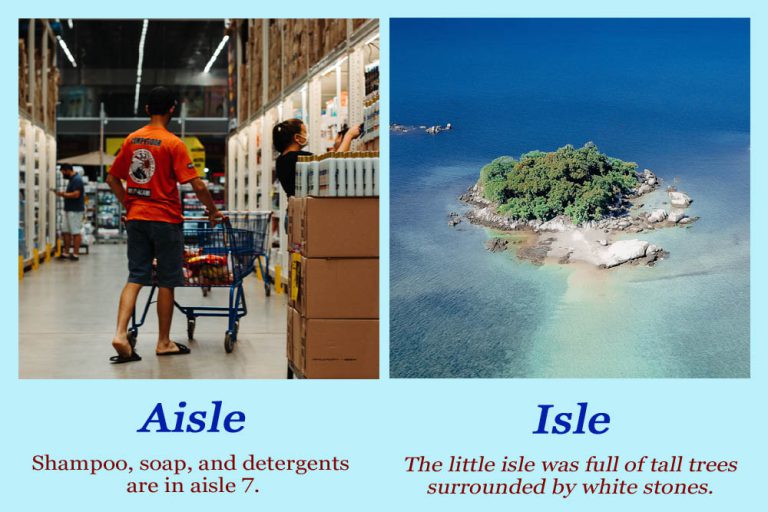
Difference between Isle and Aisle Pair of Words Literary English
Answers to Practice Exercises. (a) Meg slid past her parents, hurried up the aisle, and disappeared through the wide doorway. (b) I spoke to a strange man who lives alone on an isle in the bay. (c) This may turn into a long letter, but I'll try my best to be brief. The words "aisle," "I'll," and "isle" are commonly confused.

Aisle vs. Isle What’s The Difference? The Word Counter
An aisle (pronounced like the contraction I'll) is a noun that refers to, "a passage between rows of seats in a church, theatre, train, etc., or between rows of shelves in a supermarket".It's the more commonly used word of the two, so if you're thinking of the phrase "walking down the aisle", this is the correct spelling.. An isle is also a noun, but it refers to an island.

Homophones Aisle vs. Isle Don't that the 's' is silent in
To better understand isle and how it is different from the word aisle, let's look at its origin. The word isle is from the 13th century, from the old French world "ile". The Latin word for island is "insula". According to Etymonline, "Perhaps (as the Ancients guessed) from in salo " (that which is) in the (salty) sea," from.
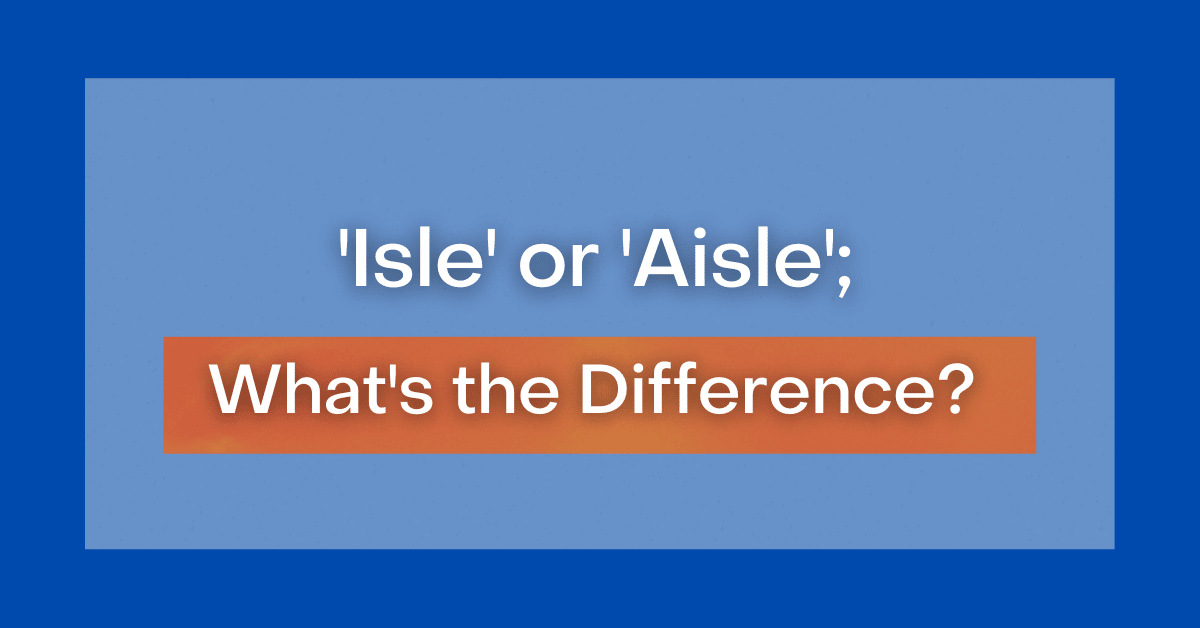
‘Isle' or 'Aisle' What's the Difference?
So, the biggest difference between the nouns "aisle" and "isle" is their meanings. The word "aisle" means a passageway between rows of seats or shelves, usually found in stores or some kind of theaters. You might see the word aisle used figuratively in a political context to talk about the division between certain politics, like.
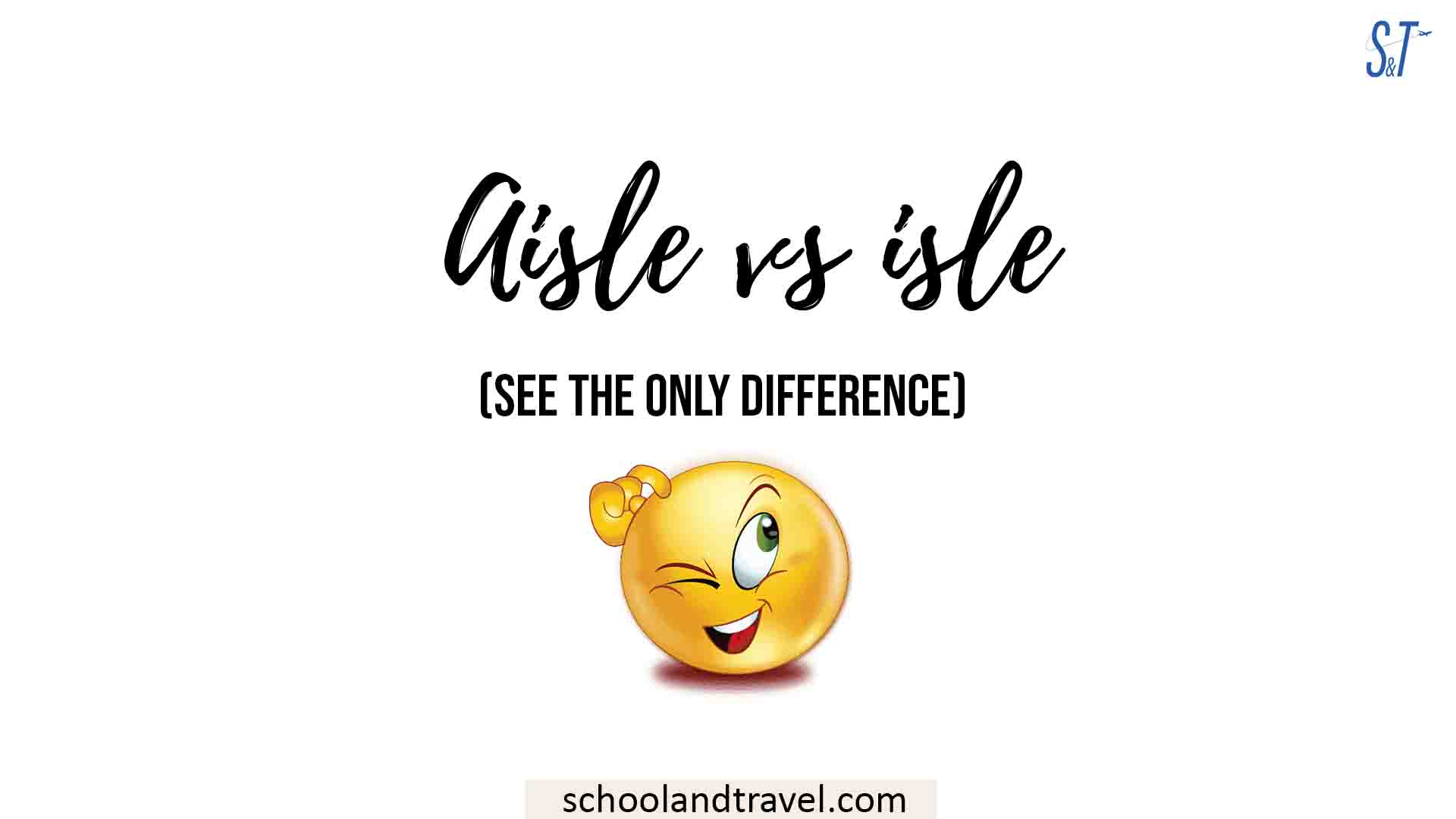
Aisle vs Isle (Which one is correct?) School & Travel
Even though aisle and isle look similar and sound exactly the same, they are very different words. If you are confused about which one to use, just look at the first three letters of the word. When you are talking about an isl and, use isle. The first three letters of "island" and "isle" are exactly the same, so you know isle is the word you want.
Aisle or Isle What’s the Difference?
In this edition, we discuss a common grammar error: aisle vs. isle. The exact pronunciation match of these two pairs adds to the confusion between the two, not to mention their near-exact spelling, with only one letter separating the two. Despite this, the words 'aisle' and 'isle' differ vastly in meaning and context. When to Use Aisle
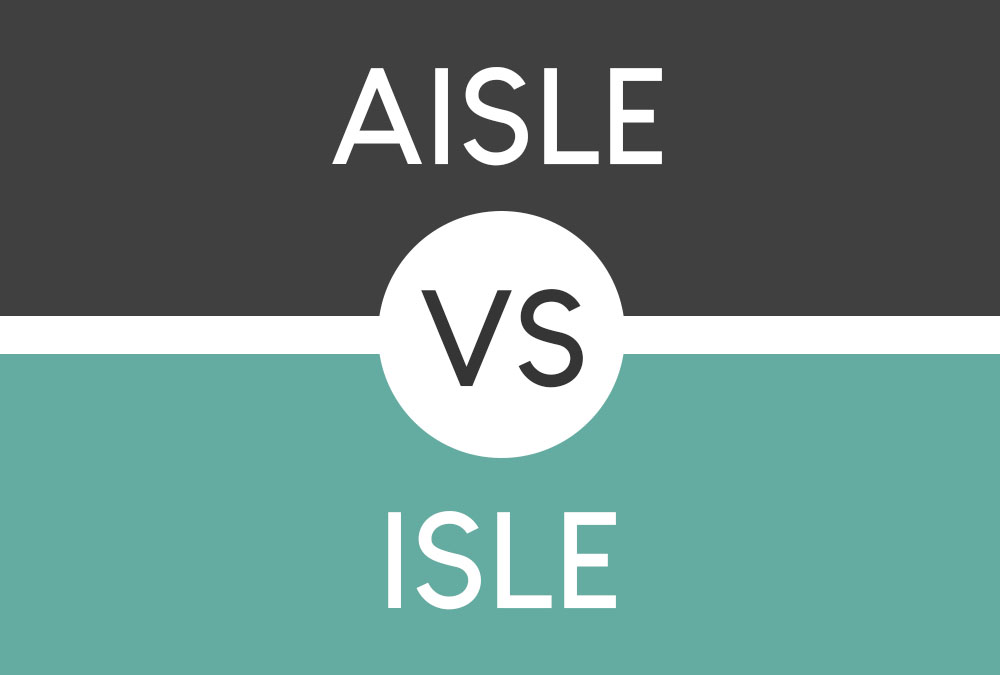
Aisle vs Isle Pick The Correct Word Word Count Tool
Aisle is a noun that means a passage between rows of things like seats or shelves.. She walked down the aisle looking for a place to sit. Isle is a also a noun that means island.. The athlete trained by swimming from the mainland to the isle. Now that you know the differences between these two words, let's look at them in context to ensure you don't confuse one for the other.

Q&A Isle vs aisle Australian Writers’ Centre blog
Aisle vs. Isle. Not only are aisle and isle homophones (words having the same pronunciation but different meanings, origins, or spelling), they are also spelled similarly. The only difference is the beginning letter a in aisle. This causes greater confusion among English writers, causing them to interchange the two terms in their sentences.